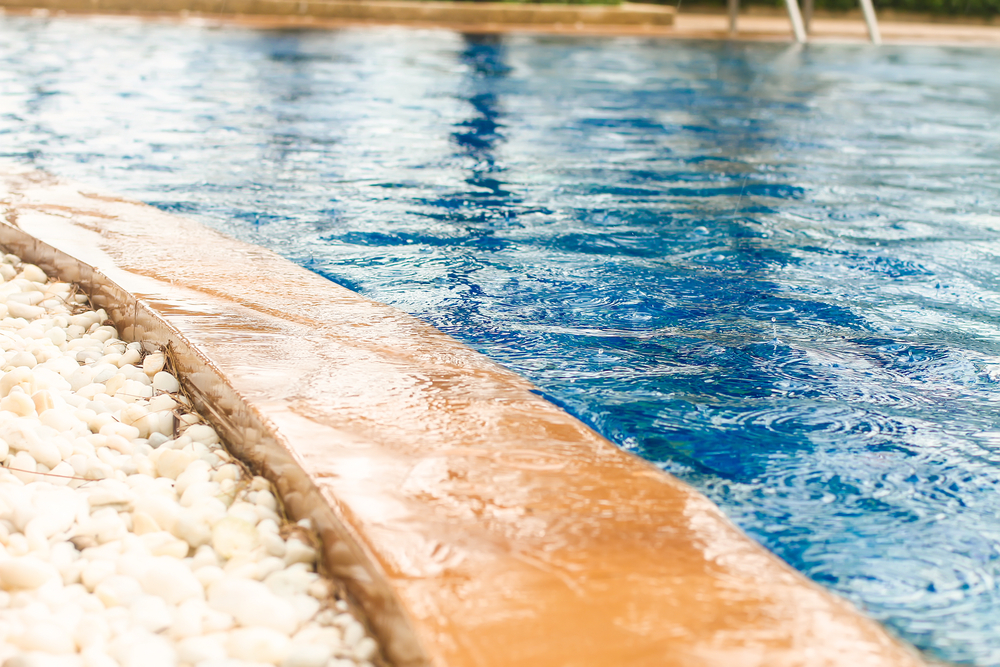How Rain Affects your Pool
/In times of heavy rain, how is your pool water affected, and more importantly, what you can do about it?
The rain can definitely have an adverse effect on your swimming pool water, though it may come as a surprise that the problems caused by rain are not a result of the 'dilution' of the chemicals in your pool. An inch of rainwater added to a typical 50,000 litre pool increases the amount of water by only about 1.5%, meaning dilution is not usually an issue.
It's more about what comes into the pool with the rain. Rain delivers algae spores, which are usually present in the air airborne debris to pool water and it is these things that cause problems. When it rains, these spores and other material in the air above a swimming pool get washed into the water.
All of this material reacts with your pool chlorine and so reduces the active chlorine level in the water. Combined with this, when the organic matter decomposes it provides fuel (phosphates) for the growth and reproduction of algae and other simple organisms in the water.
Combined with sunlight, especially in warmer water, the conditions become perfect for the accelerated growth of algae in the pool.
When you have rainwater coming off your landscape or deck, you also have an added source of water and debris to deal with.
When rainwater and ‘run off’ enter the pool, they can change your water’s pH, calcium hardness, total dissolved solids (TDS), alkalinity, and other chemical levels as well as bring contaminants such as dirt and debris into the pool.
So, what do you need to do?
First, empty your skimmer and pump baskets… The extra debris going into the pool will clog baskets and reduce water flow.
Remove large debris and leaves from the pool as these also can affect the pool water chemistry and potentially stain the surface.
It is important that you test your water after it rains (from elbow depth) and re-balance if necessary, if the Total Alkalinity of your pool water is within the ideal range, then the pH of the rainwater will not significantly affect your pool water balance.
Lower your pool water level
A lot of the fresh rainwater will sit on the top of the pool water so ideally when you lower your water level, you send that ‘fresh water’ to waste by disconnecting a suction cleaner (which sits on the bottom of the pool). By lowering the water level to halfway up the skimmer box, this will also allow for proper skimming of the pool surface of any debris.
If your filter has a multiport valve, lower your pool water level to prevent overflowing by following these steps:
Turn off the pump,
Change the filter multiport valve handle from "filter" onto "waste" (not backwash),
Open any valves on the waste line,
Disconnect suction cleaner & remove vacuum plate from skimmer box,
Then turn the pump back on to lower the water level,
Wait until the water level is halfway down the skimmer box opening then
Turn the pump off,
Return the multiport valve handle to "filter",
Reconnect the vacuum plate and suction cleaner and
Turn the pump back on (or set time to auto).
*if you have a large amount of dirt in the water and the pool requires floccing, DO NOT lower your water level, you will need all the water to vacuum to waste.
Low Salt?
If your water is clear but your salt level is low, please follow the instructions below.
Keep your pool pump running on your time for 8 hours/day,
Ensure your water is balanced (except for your salt level),
Turn your chlorinator chlorine production down to ZERO/OFF,
Put a chlorine tab float in your pool to maintain your chlorine level, we have these in stock at all stores
Every week add 500gms of chlorine to your water.
*If you have a large amount of dirt in the water and the pool requires floccing, DO NOT lower your water level, you will need all the water to vacuum to waste.
We advise that you turn the filtration system OFF, then contact us or come in for further advice.
Green Pool?
The solution is to make sure that the rate at which the algae in your pool are being killed is faster than the rate at which they are reproducing. This means raising the sanitiser (chlorine) level up, much higher than the ideal range, balancing the pH level, adding an appropriate algaecide, clarifier, and oxidiser.
By adding these chemicals and running the filtration system for a minimum of 24 hours, should return the pool to crystal clear again.
Brown Pool?
With very heavy rains, runoff from gardens and surrounding areas of the pool can add large amounts of dirt, garden soil, and even mud into a pool.
This will turn the pool into a messy brown soup with the inability to filter out. This is where a floccing agent is used to bind the suspended particles together and drop them to the floor of the pool to make it easier to remove by vacuuming directly to waste.
If you require help with any of these techniques please come into our one of our stores and speak with our experienced team or book your service online below.




